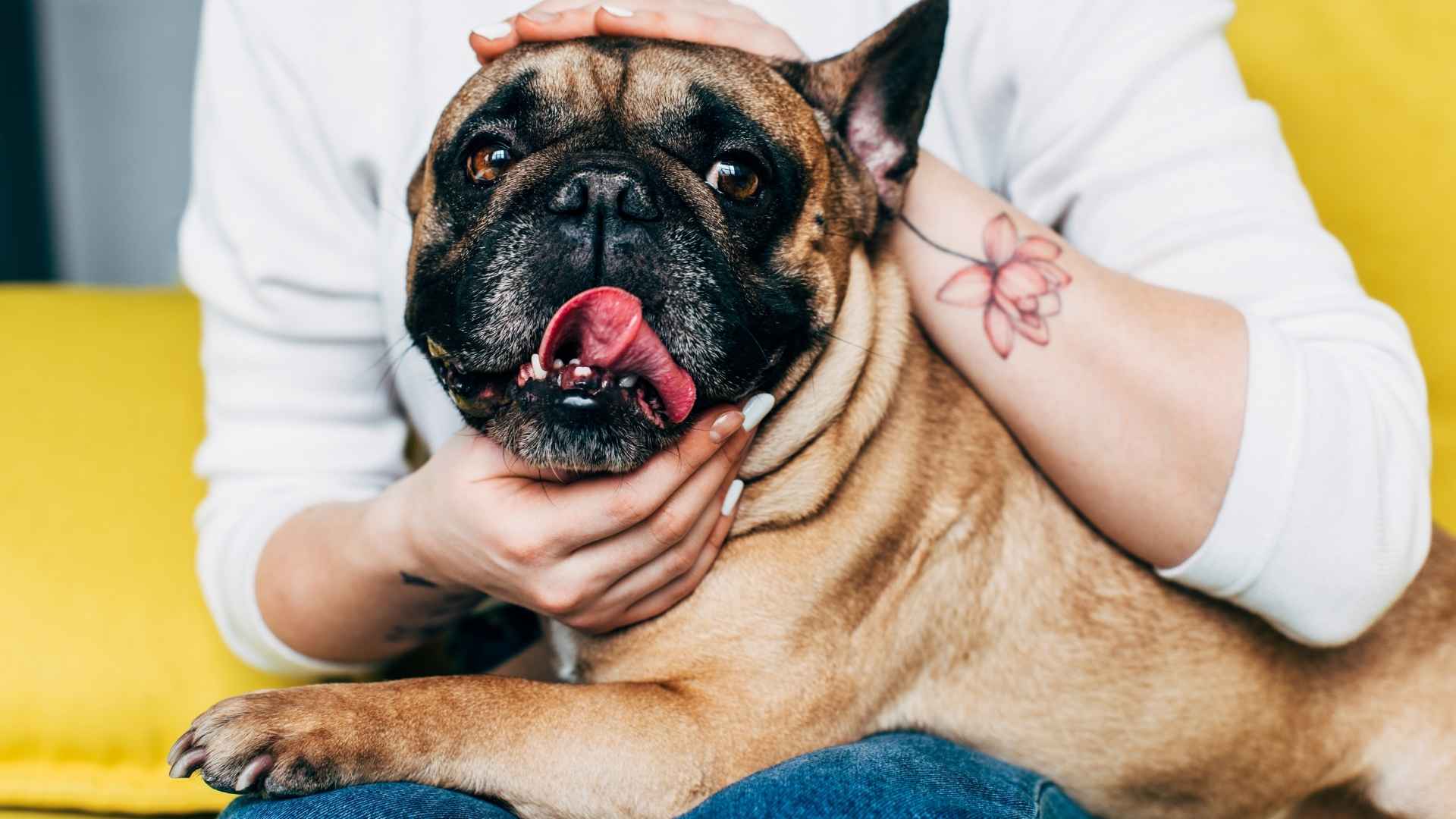Did you know dogs can be emotional sponges, picking up on their humans’ moods more often than we realize? While some pups wear their hearts on their paws, others have a more balanced temperament, offering just the right mix of emotional depth and stability. These moderately emotionally sensitive dog breeds bring the best of both worlds; able to connect with their humans on an intuitive level while still staying grounded in daily life.
Whether you’re looking for a dog that can comfort you during a tough day or one that won’t get overwhelmed in busy households, these breeds hit the sweet spot. They’re neither aloof nor overly reactive, making them great companions for individuals, couples, and families alike.
Many of them also thrive in structured environments and can adapt beautifully to changing routines or new faces. Let’s dive into a unique group of emotionally aware yet level-headed pups that offer warmth, sensitivity, and an endearing sense of balance.
Moderately Emotionally Sensitive Dog Breeds
1. Bernese Mountain Dog
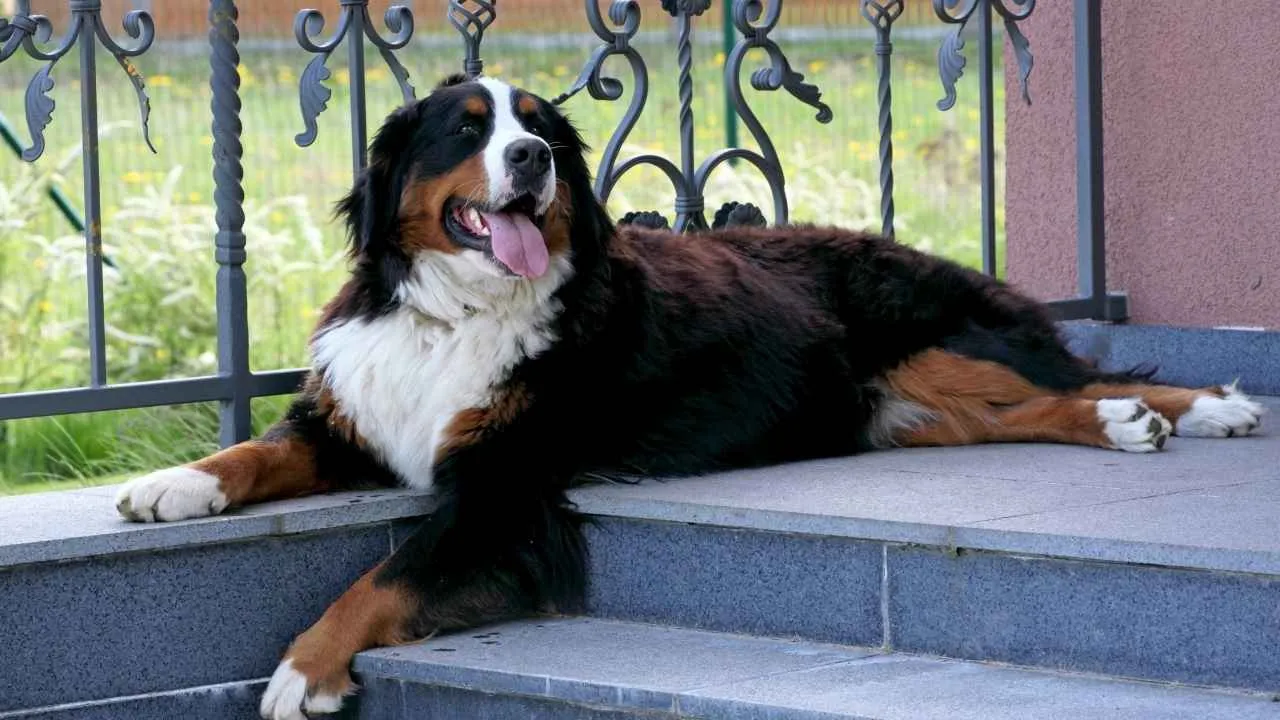
The Bernese Mountain Dog strikes a remarkable balance between calmness and emotional attunement. While they don’t wear their hearts on their sleeves like some more sensitive breeds, these gentle giants are finely tuned to the moods of their families. Their emotional sensitivity often shows in subtle ways, like quietly positioning themselves nearby when you’ve had a rough day or showing slight withdrawal when tensions run high in the household.
Known for their affectionate and easygoing nature, Bernese Mountain Dogs thrive in stable environments with predictable routines. They’re particularly well-suited to families who can offer companionship without overwhelming interaction. Loud environments or chaotic energy might make them uneasy, so they tend to do best with owners who maintain a calm, nurturing presence.
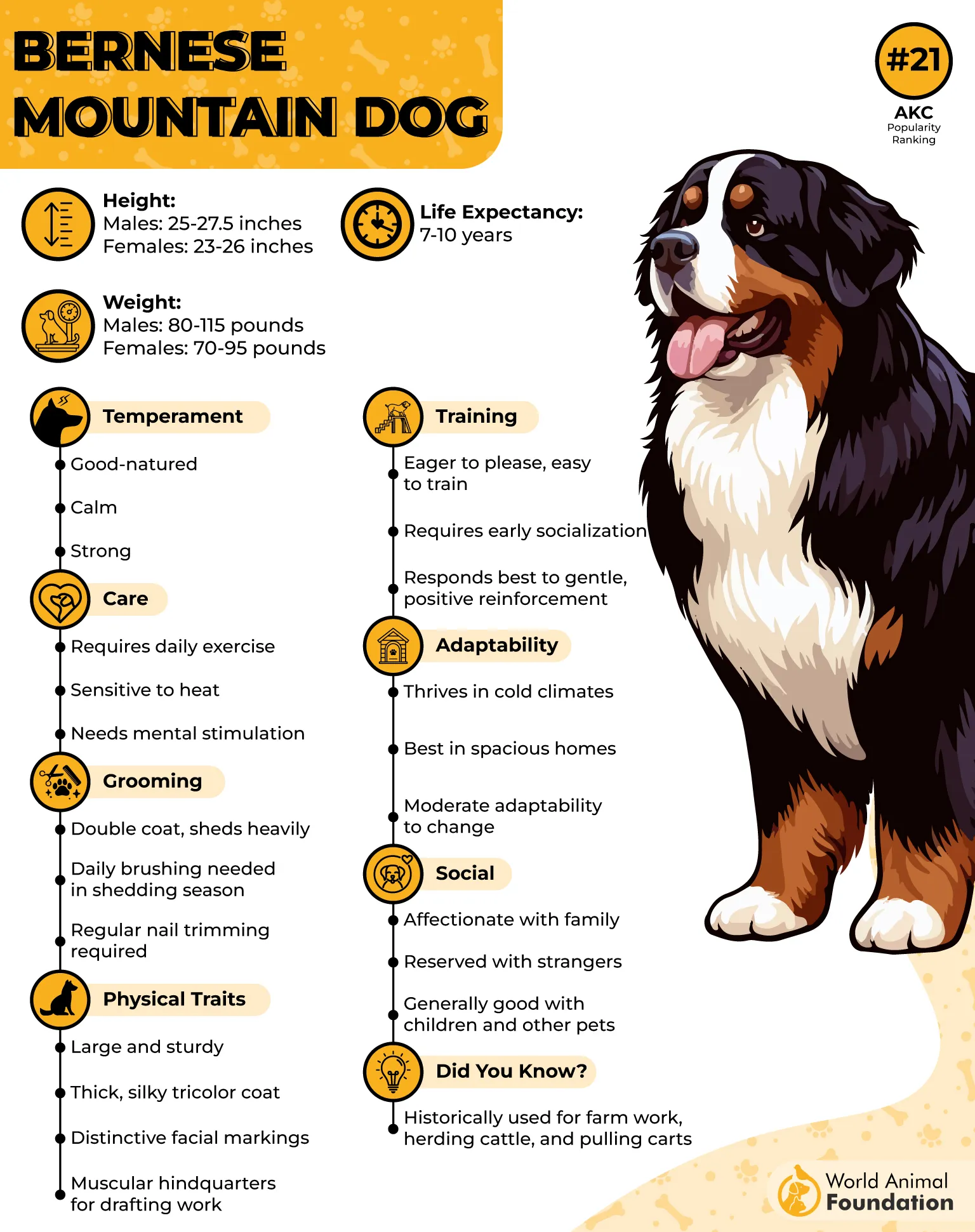
Though not clingy, these dogs form strong attachments and may become slightly withdrawn if left alone for extended periods. Their moderate emotional sensitivity means they often reflect the emotional climate of their surroundings, making them both reliable companions and subtle barometers of the home atmosphere.
Training a Bernese Mountain Dog is generally smooth, thanks to their cooperative spirit and desire to please. However, they do best when handled with patience and gentle guidance. Harsh corrections can unsettle them, whereas positive reinforcement brings out their best.
For those seeking a dependable, affectionate dog with just the right amount of emotional insight, the Bernese Mountain Dog fits the bill beautifully. Their presence is comforting, their affection sincere, and their sensitivity quietly enduring.
2. Labrador Retriever
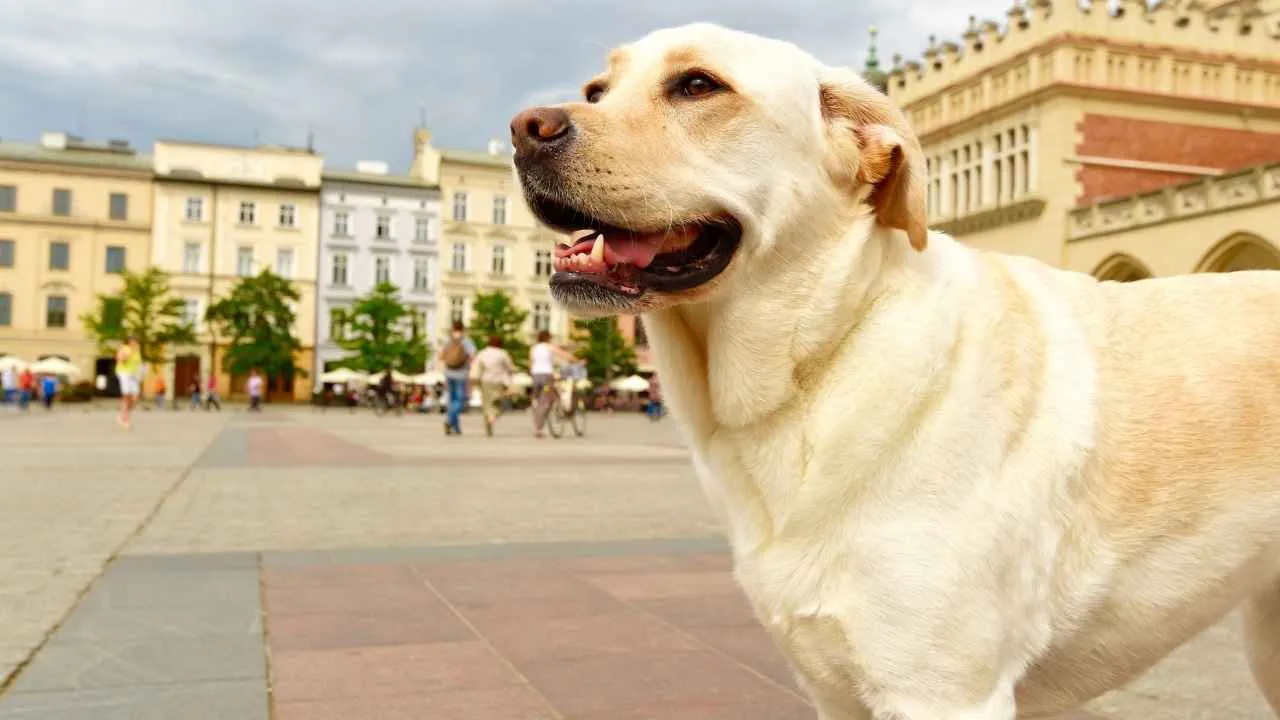
It’s no surprise that the Labrador Retriever, America’s longtime favorite, lands on the list of moderately emotionally sensitive breeds. Labs are known for their cheerful temperament, but they’re also quite attuned to human emotions, without being overly reactive. This balance makes them both emotionally intelligent and remarkably steady companions.
These dogs form strong bonds with their families, and while they do appreciate love, they’re not overly clingy. Labs are the type to quietly stay nearby rather than demand constant attention, offering comfort through presence more than persistence. This makes them ideal for owners who appreciate emotional connection without the need for constant reassurance.
Their sensitivity does show through in certain environments. Labrador Retrievers tend to pick up on mood shifts in their households and may become subdued if there’s tension, though they bounce back quickly. Their adaptable nature allows them to handle a variety of settings, from busy homes to calm countryside living.
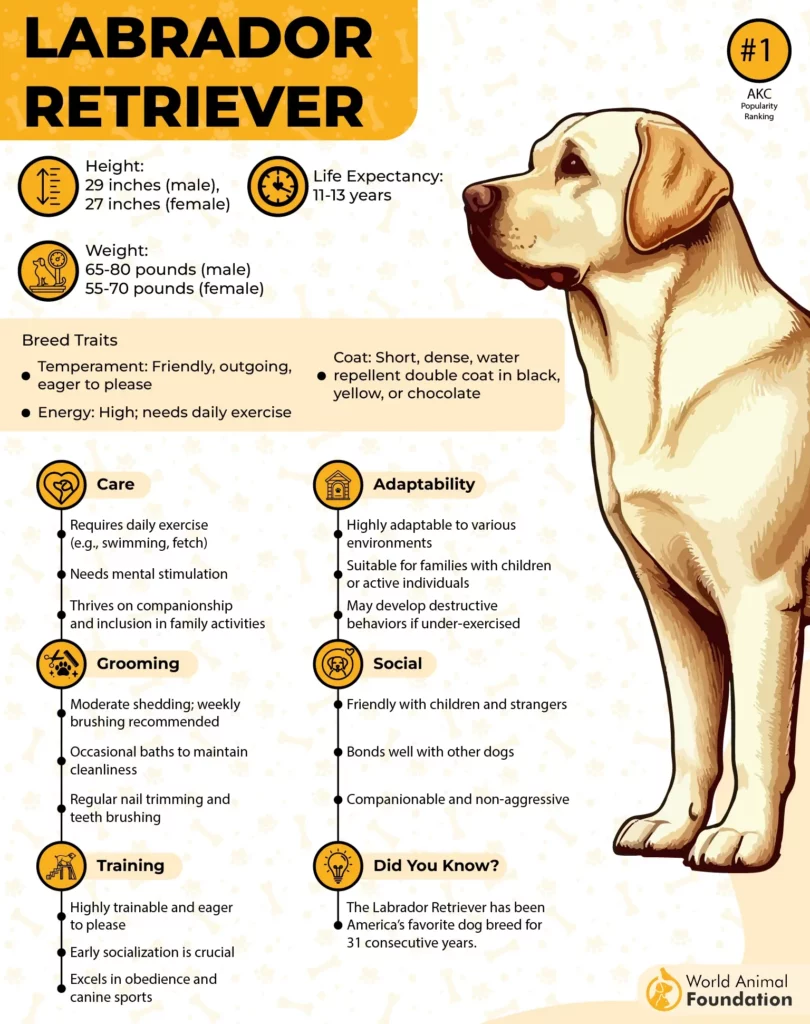
They do well with gentle guidance and respond best to training methods that are positive and encouraging. While they won’t sulk from a stern tone, a patient approach keeps their spirits high. It’s this emotional flexibility that contributes to their reputation as dependable family dogs.
Ultimately, Labs bring a grounded, lovely energy that suits a wide range of lifestyles. Their sensitivity is just enough to make them incredibly intuitive, without tipping into emotional fragility.
3. Golden Retriever

The Golden Retriever stands out for its adorable nature and intuitive emotional connection with people. Known for being friendly and adaptable in nature, this breed offers a steady balance of enthusiasm and calm, making it well-suited for emotional support.
Golden Retrievers are quick learners and highly trainable, thriving on both mental stimulation and human interaction. Their instinct to comfort and uplift makes them reliable companions for those navigating emotional challenges.
Physically, they’re large and muscular, with fluffy, double-layered coats that require brushing once or twice a week. Their broad heads and expressive eyes give off a sense of warmth and dependability that few other breeds can match.

Living around 10 to 12 years, Golden Retrievers are built for companionship and purpose. Whether it’s providing comfort during a tough moment or lending support through everyday life, they excel in versatile roles, especially as emotional support animals.
Their even temperament, loyal disposition, and eagerness to please make them one of the most beloved choices for moderate emotional sensitivity needs.
4. Cavalier King Charles Spaniel

According to AKC, Cavalier King Charles Spaniels are gentle, graceful, and affectionate. With their gentle eyes and constantly wagging tails, Cavalier King Charles Spaniels radiate warmth and companionship. These dogs are known for forming strong emotional bonds with their humans, yet they manage to balance affection with a calm, even-tempered nature.
While they certainly appreciate love and attention, they’re not overly sensitive to every mood swing in the household, making them an ideal example of a moderately emotionally sensitive breed.
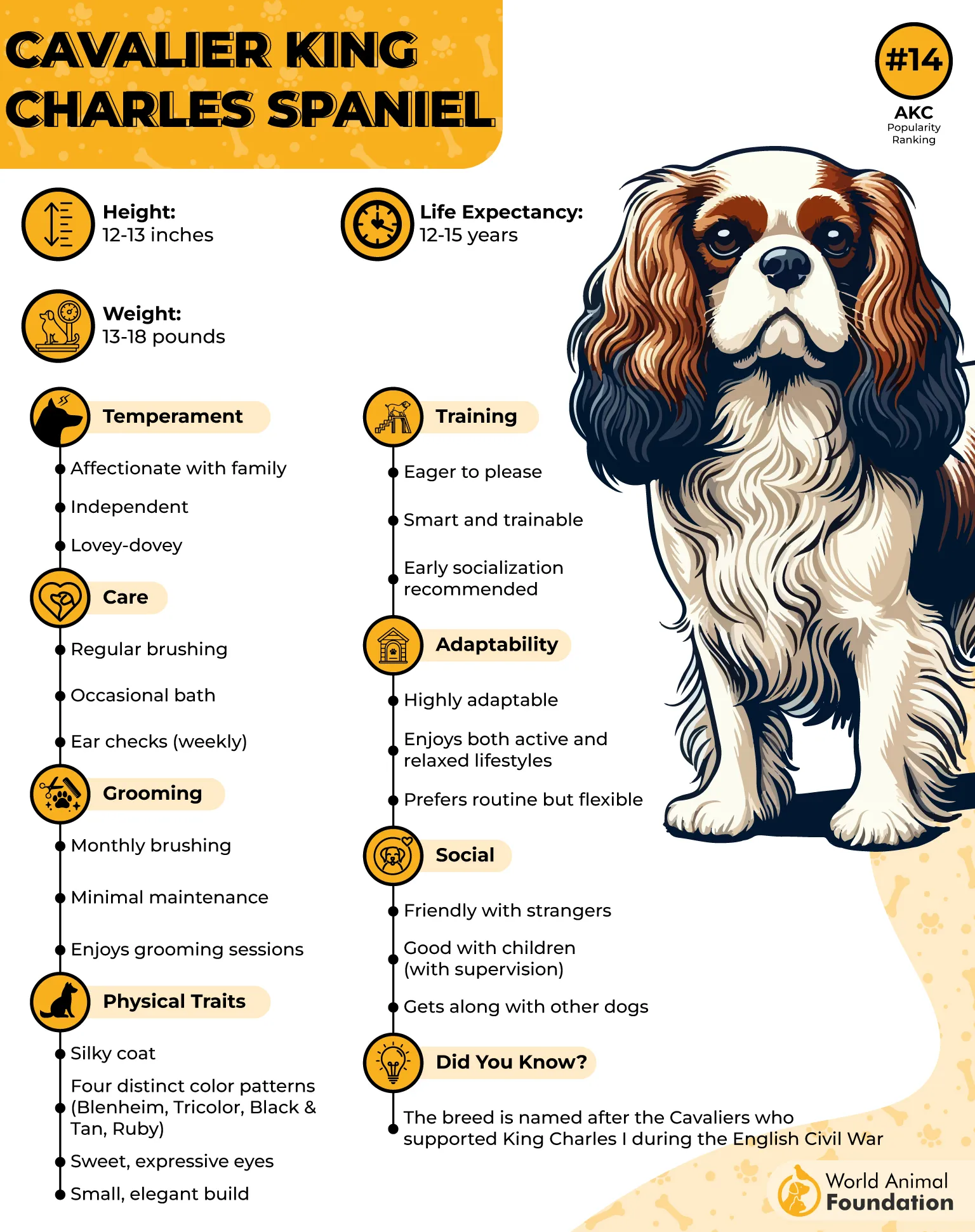
This breed’s intuitive side shines in its ability to sense emotional changes without becoming overwhelmed by them. They’ll stay close during difficult times but won’t demand constant reassurance or attention. Instead, they thrive with a predictable routine and positive interactions.
Thanks to their social charm and adaptable nature, Cavaliers get along well with children, other pets, and guests. Their laid-back demeanor helps them navigate different environments without anxiety. However, they still enjoy the comfort of familiar faces and surroundings.
Overall, the Cavalier King Charles Spaniel offers an appealing mix of empathy and steadiness, perfect for families seeking a companion who’s emotionally in tune without being overly reactive.
5. German Shepherd
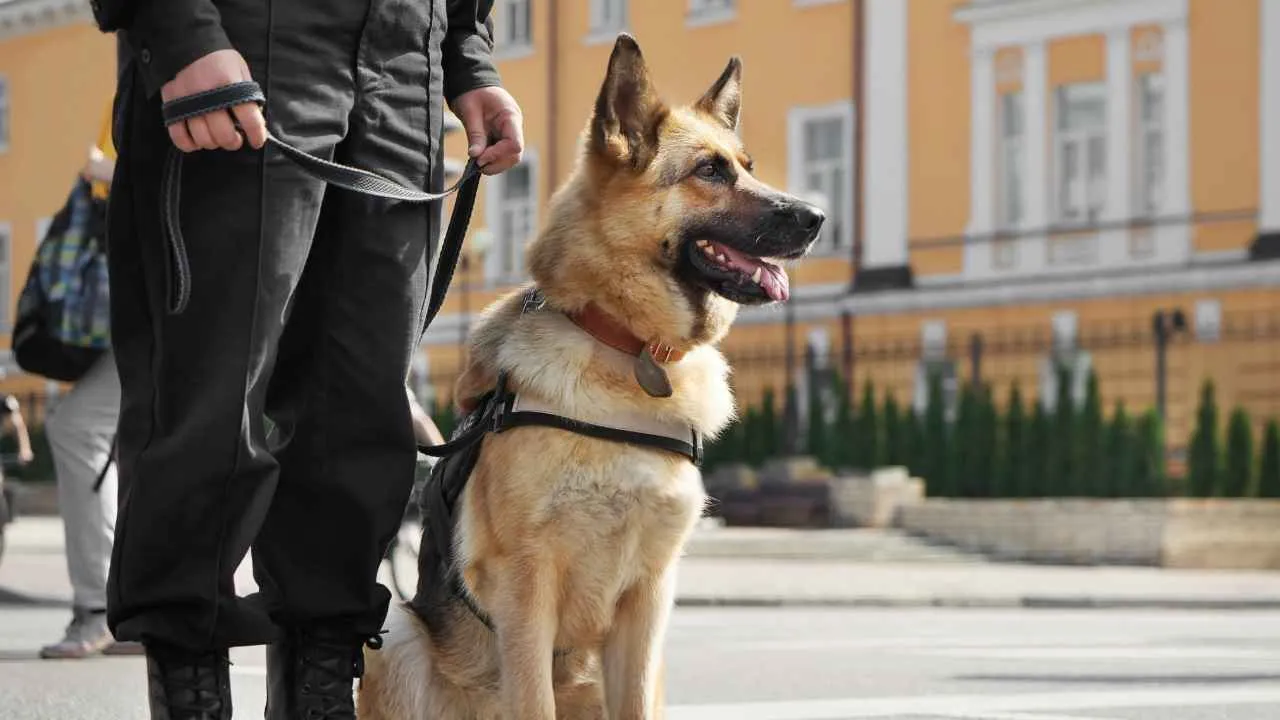
The German Shepherd is one of the most versatile and admired breeds, celebrated for its intelligence, loyalty, and alertness, as per Britannica. Bred originally for herding and guarding sheep in 19th-century Germany, this breed quickly evolved into a reliable partner in police work, search and rescue, and military service. With a balanced mix of independence and a kind nature, they adapt well to families who appreciate structure and meaningful interaction.
Known for their medium to large build, German Shepherds boast a double coat that’s dense and weather-resistant, often in colors like black and tan, sable, or all-black. Their signature alert expression and bushy tail make them instantly recognizable. Regular grooming is essential, especially since they shed year-round.

Emotionally, they are sensitive enough to bond deeply with their humans but resilient enough to manage moderate change and environments. However, they don’t do well left alone for long; mental engagement and companionship are crucial to avoid anxiety or behavioral issues.
This breed excels in mentally stimulating tasks, from advanced obedience and agility to tracking and herding trials. Their drive to work, paired with their intelligence, makes them highly trainable and eager to please, especially with consistent positive reinforcement.
While protective and watchful, German Shepherds also shine in family life; loyal to multiple members, kind, and dependable. With the right balance of training, exercise, and love, they make extraordinary companions.
6. Great Pyrenees
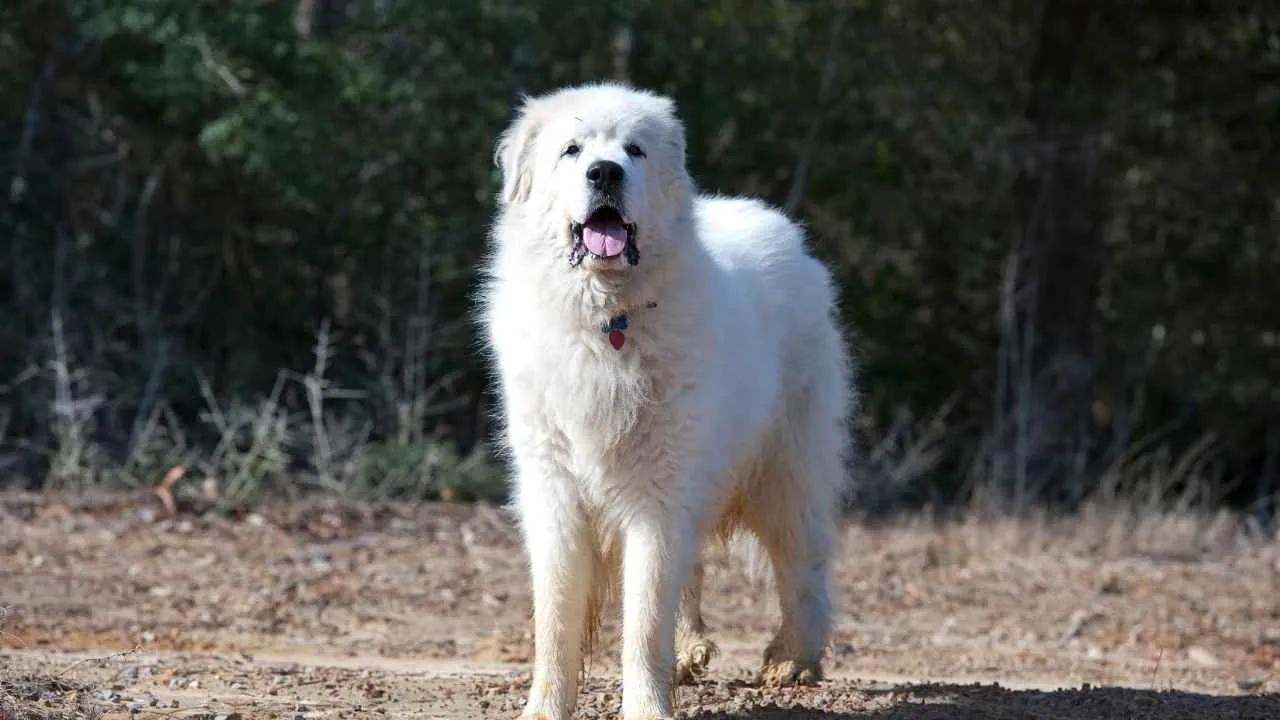
With their majestic stance and serene expression, the Great Pyrenees exude a quiet nobility that reflects centuries of independent work in the snowy Pyrenees Mountains. These large, thick-coated dogs were originally bred to guard livestock from wolves and bears, which gave rise to their steady temperament and protective instincts. PetMD states that Great Pyrenees are calm and gentle; they often approach life with patience.
Though not ideal for apartment life, Great Pyrenees thrive in cool climates and spacious homes. Their moderate sensitivity to sound and emotion makes them attentive yet composed companions. They’re known to bond deeply with their families and do particularly well with children and seniors when socialized early.
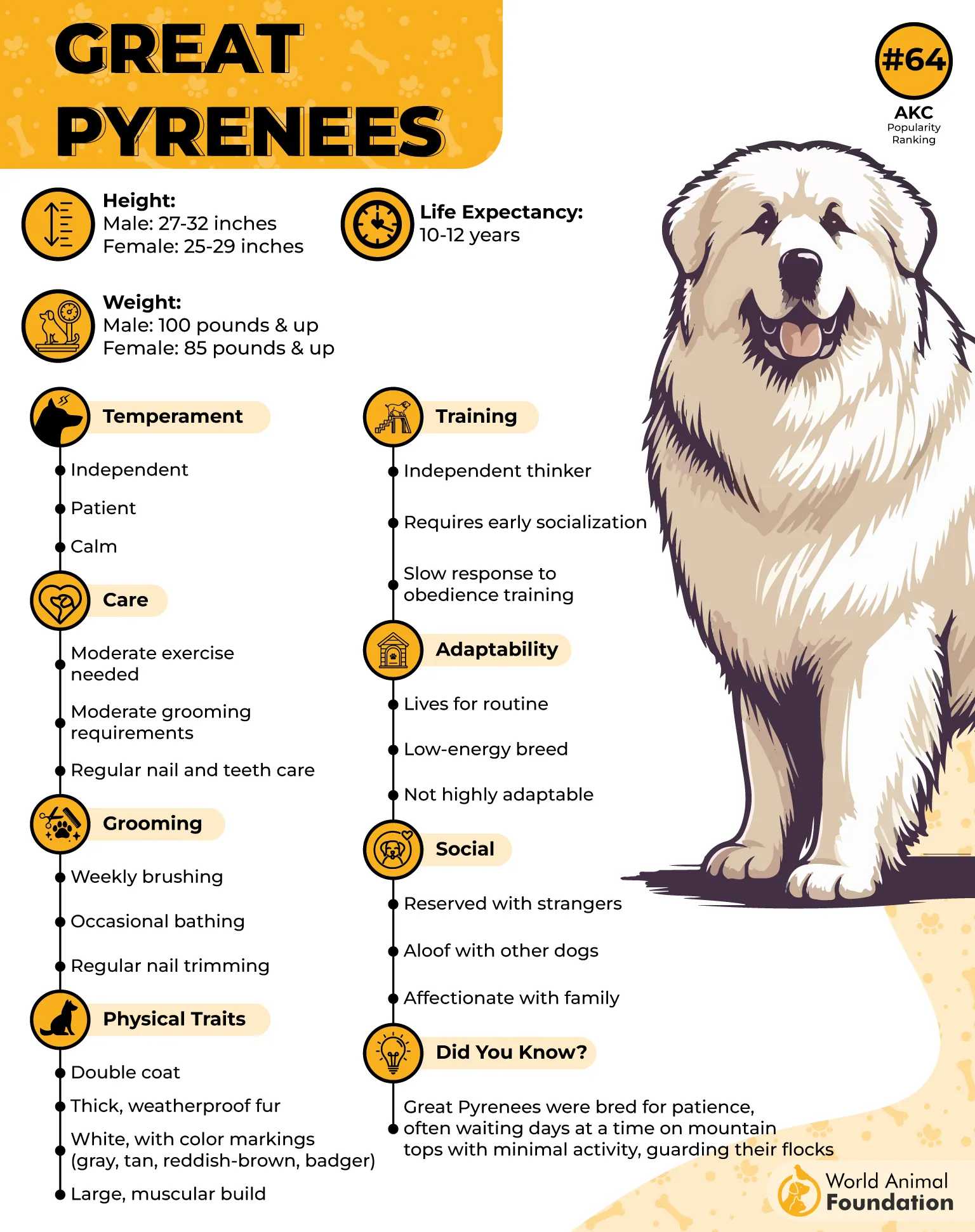
As gentle giants, they need just moderate daily exercise; about 30 minutes of walking or yard playtime suffices. Grooming, however, is more involved due to their double coat, which sheds heavily and benefits from regular brushing to stay healthy and mat-free.
Their independent thinking, developed from centuries of autonomous work, may pose training challenges, especially for first-time owners. Still, with consistent, positive reinforcement, they respond well and show unwavering loyalty.
From their regal looks to their tranquil yet protective nature, the Great Pyrenees offer a beautiful blend of emotional depth and natural poise, perfect for families seeking a calm, devoted companion.
7. Jack Russell Terrier

Despite their feisty reputation, Jack Russell Terriers (JRTs) exhibit a moderate level of emotional sensitivity that’s often masked by their boundless energy and fearless nature. Originally developed in southern England by Parson John Russell for fox hunting, these small yet bold terriers are now better known as spirited companions with sharp instincts and surprising depth of feeling.
Their temperament is lively, alert, and playful, but not without nuance. Jack Russells are affectionate and deeply loyal, forming strong attachments with their people. While they may not be the most outwardly clingy dogs, changes in routine or environment can affect them, especially if left mentally unstimulated. They thrive on consistency, so a stable household with regular play and mental engagement helps keep them emotionally balanced.
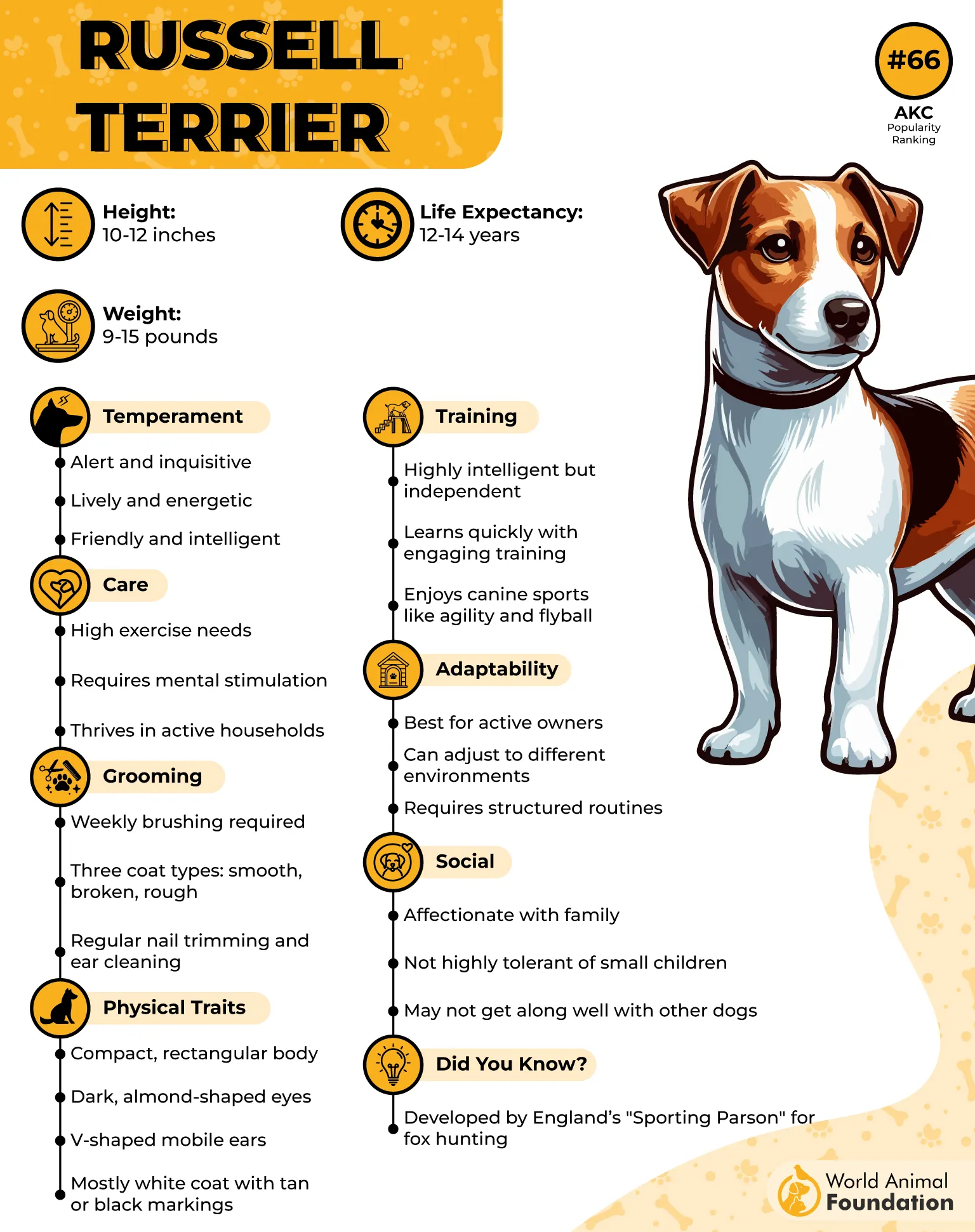
Their high intelligence and stubborn streak mean they benefit from positive reinforcement training and early socialization. If not properly guided, they can become overly vocal or display behavior rooted in frustration. But when well-trained, their watchfulness and adaptability shine through.
These terriers also have a moderate need for physical exercise paired with interactive activities to keep them sharp. Their heritage as hunters makes puzzle toys, scent games, or agility courses particularly rewarding.
For families seeking a compact companion with a mix of emotional awareness and vibrant personality, the Jack Russell Terrier offers a surprisingly sensitive side beneath its high-octane exterior.
Conclusion
In the world of canine companionship, moderately emotionally sensitive breeds strike a perfect balance. These dogs aren’t overly delicate or aloof; they’re steady-hearted companions that respond thoughtfully to their environment without being overwhelmed by it. Whether it’s a Jack Russell’s spirited devotion or a breed that quietly checks in with you after a long day, these pups offer an ideal mix of emotional attunement and independence, qualities often seen in emotional support dogs, therapy dogs, and even some service animals.
For those seeking a dog that’s tuned in without being too tender, this group brings both charm and resilience to the table. They’re great for families, singles, and even first-time pet parents who appreciate a dog with both personality and poise. Some, like the short-haired dogs or even the misunderstood pit bull, may also serve as guard dogs or be trained as service dogs, depending on their temperament. So if you’re ready for a four-legged friend who reads the room, but doesn’t run it; you may have just met your match. Sometimes, the best companions, whether dogs or other animals, are the ones who understand when to play, when to cuddle, and when to just be near. And among the best emotional support animals, these balanced breeds truly shine.


